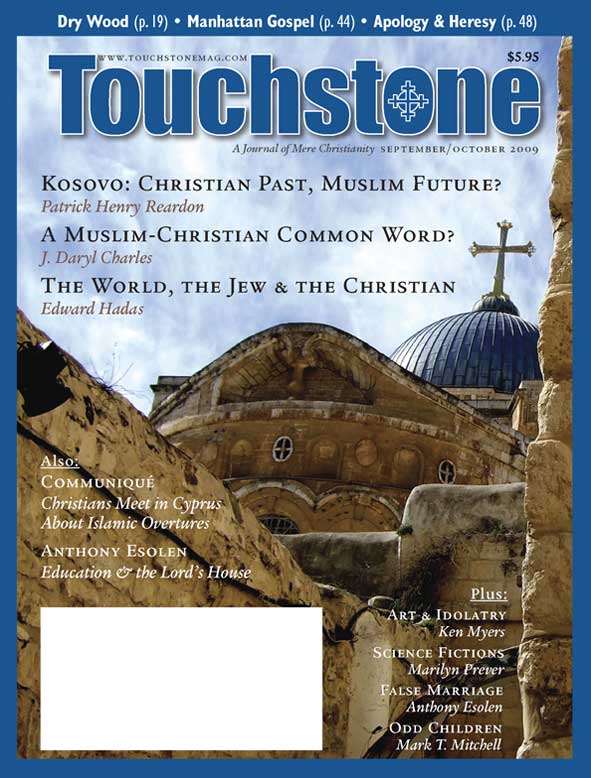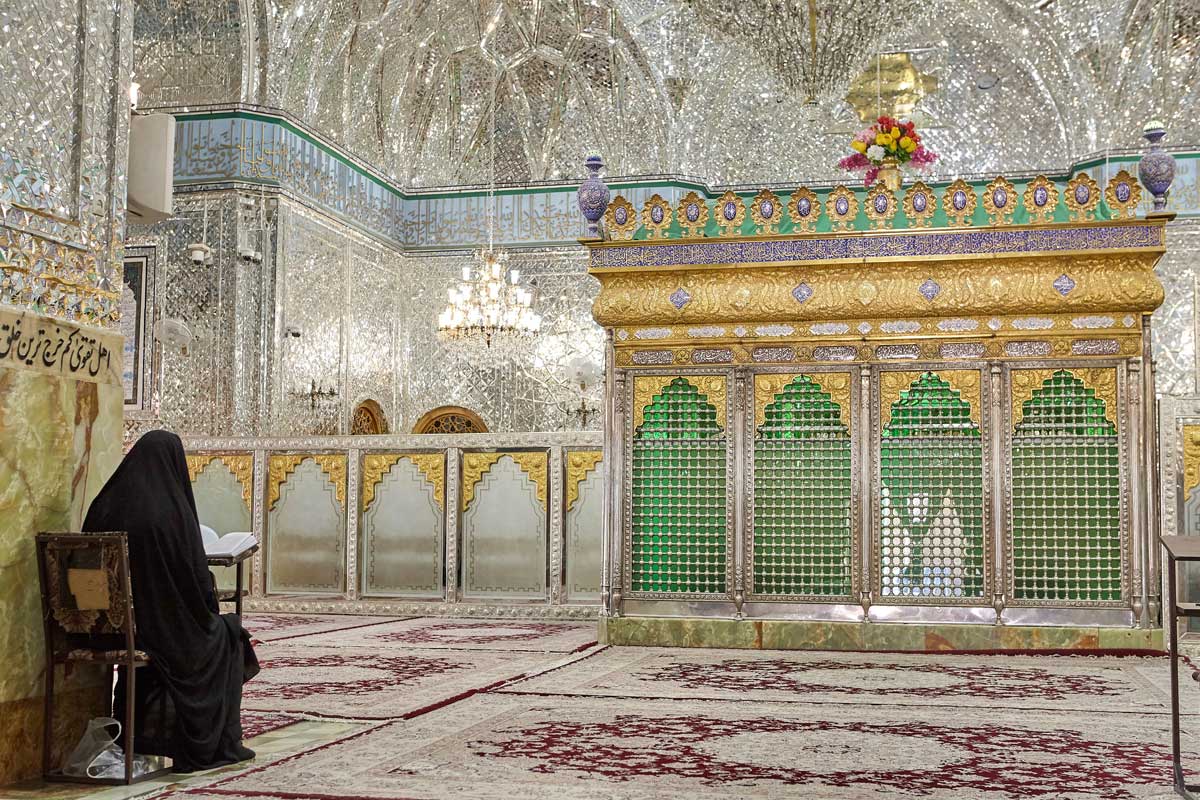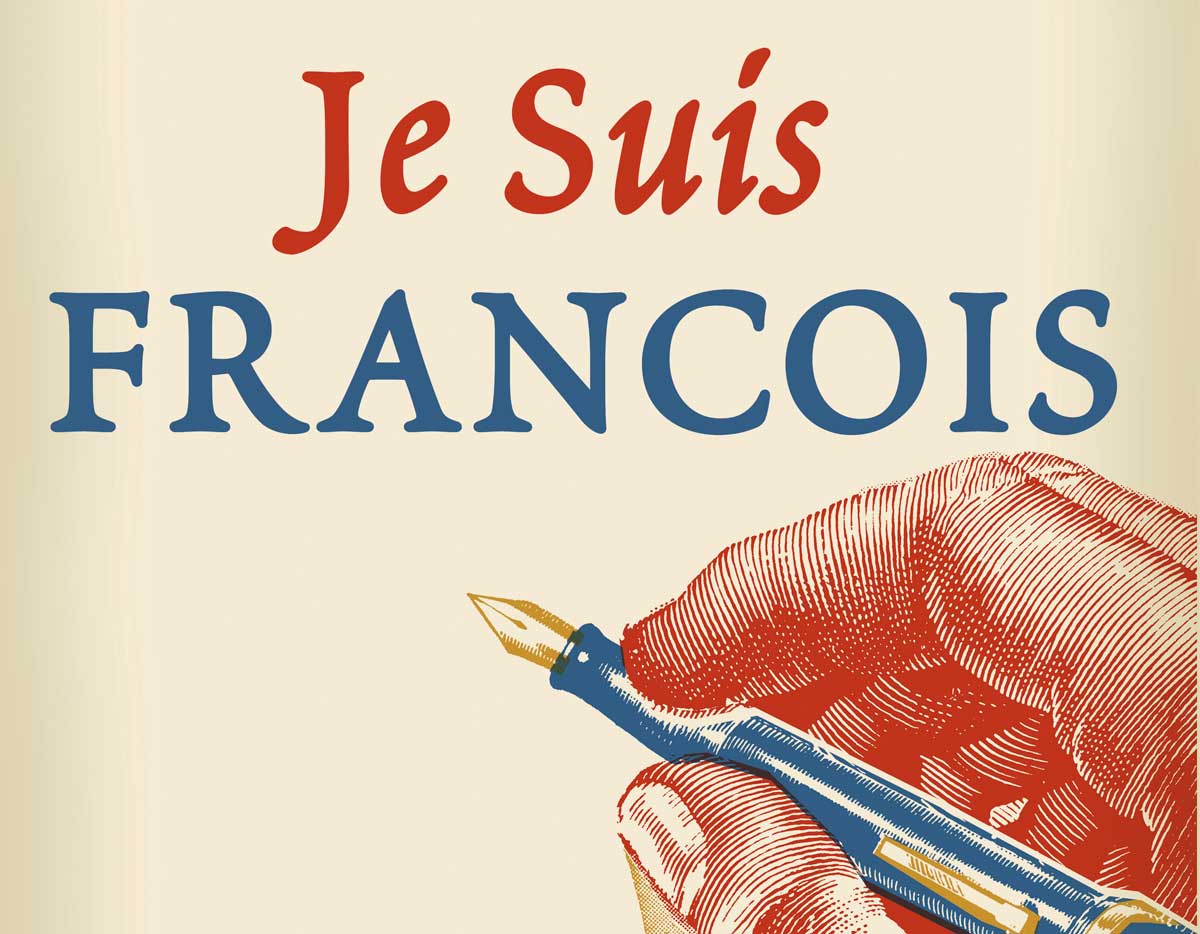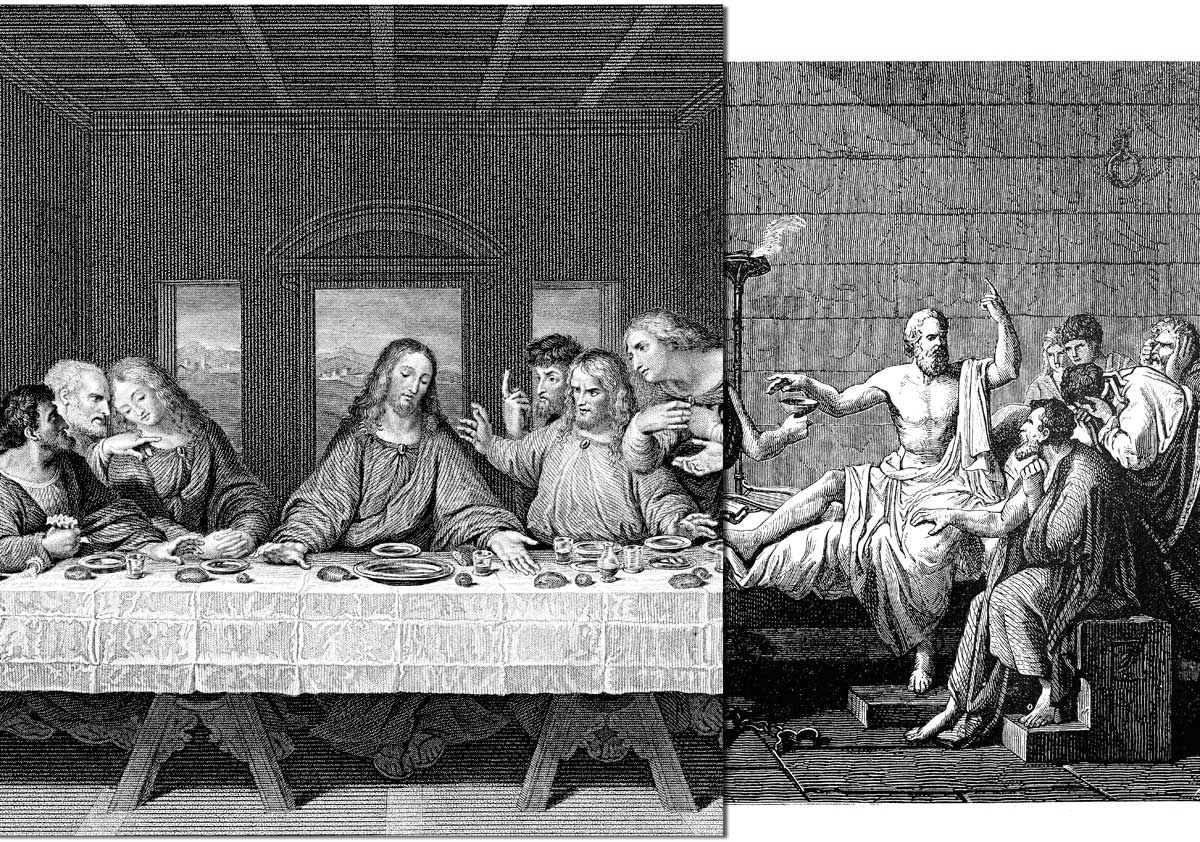Regensburg Left Behind
Christians Responding to Muslim Invitations Haven’t Been Listening to Benedict XVI
by J. Daryl Charles
Few will forget the uproar among Muslims worldwide that was precipitated in September 2006 by Pope Benedict XVI’s address at the University of Regensburg. In this address, titled “Faith, Reason, and the University: Memories and Reflections,” Benedict combined personal reflections on teaching theology at the University of Bonn decades earlier with his assessment of the state of contemporary academic discourse. In retrospect, Benedict’s personal experience in the professoriate strikes the reader as cause for great satisfaction. Benedict recalled:
We would meet [at the university] before and after lessons in the rooms of the teaching staff. There was a lively exchange with historians, philosophers, philologists, and naturally, between the two theological faculties. Once a semester there was a dies academicus, when professors from every faculty appeared before the students of the entire university, making possible a genuine experience of universitas . . . the experience, in other words, of the fact that despite our specializations which at times make it difficult to communicate with each other, we made up a whole, working . . . on the basis of a single rationality with its various aspects and sharing responsibility for the right use of reason. . . .
Benedict noted the significant role of the university’s theological faculty, since “by inquiring about the reasonableness of faith, they too carried out a work which is necessarily part of the ‘whole’ of the universitas scientiarum, even if not everyone could share the faith which theologians seek to correlate with reason as a whole.” “This profound sense of coherence within the universe of reason,” Benedict insisted, “was not troubled, even when it was once reported that a colleague had said there was something odd about our university: it had two faculties devoted to something that did not exist: God.”
It is still necessary, Benedict continued, particularly given the prevalence of radical skepticism in our day, “to raise the question of God through the use of reason, and to do so in the context of the tradition of the Christian faith” (emphasis added). He reminded his German audience that this activity, though currently unfashionable, was “accepted without question” only decades ago within the university as a whole.
Born of the Soul
Of course, much has changed in the decades since Benedict (at the time, Joseph Ratzinger) taught at the University of Bonn. Several interlocking factors have emerged to complicate the task of teaching the reconciliation of faith and reason in contemporary Western culture in general and in the European context in particular. One such factor is Europe’s advanced (and often critiqued) secularization and the attendant hostility toward its own religious-cultural history. One need only recall the fierce debate some years ago over whether to include any religious references in the European Union’s constitution. This element is compounded by another significant development—demographic in nature and by now well-advertised as well—which finds large numbers of Muslims immigrating to Europe and, in contrast to most Europeans, vigorously pressing their own faith claims.
It is important to bear these two factors in mind, for they assist us in understanding the agitated response that followed Benedict’s Regensburg address. Wishing to illustrate the symbiotic relationship between faith and reason, the pope compared the “structures of faith” as taught in Christianity with those taught in the Qur’an. Acknowledging, by way of historical example, the differing attitudes toward faith in the two religions, he stressed that compulsion “is incompatible with the nature of God and the nature of the soul.”
The biblical witness, he reminded his audience, is marked by the fact that faith is “born of the soul, not the body.” Therefore, “whoever would lead someone to faith needs the ability to speak well and to reason properly, without violence and threats. . . . To convince a reasonable soul, one does not need a strong arm, or weapons of any kind, or any other means of threatening a person with death.” “The decisive statement” in this argument against forceful conversion, Benedict concluded, is this: “not to act in accordance with reason is contrary to God’s nature.”
For some, the thesis that faith and reason are symbiotic and that faith cannot be coerced is rather non-controversial. But to others in the Regensburg audience and to Muslim representatives worldwide, a nerve had been struck. Not a few Muslim leaders demanded an apology from Benedict. One month after the address, a group of 38 Muslim leaders wrote the pope an open letter that attempted to correct perceived errors in his representation of Islam while calling for greater mutual understanding between Muslims and Christians.
J. Daryl Charles is the Acton Institute Affiliated Scholar in Theology & Ethics. He is the author or editor of twenty books, including Retrieving the Natural Law (2008), Natural Law and Religious Freedom (2018), and, most recently, Just War and Christian Traditions (forthcoming). He is also co-editor of Abraham Kuyper, Common Grace: God's Gifts for a Fallen World, Volume 3 (2020). He is a contributing editor to Touchstone.
subscription options
Order
Print/Online Subscription

Get six issues (one year) of Touchstone PLUS full online access including pdf downloads for only $39.95. That's only $3.34 per month!
Order
Online Only
Subscription

Get a one-year full-access subscription to the Touchstone online archives for only $19.95. That's only $1.66 per month!
bulk subscriptions
Order Touchstone subscriptions in bulk and save $10 per sub! Each subscription includes 6 issues of Touchstone plus full online access to touchstonemag.com—including archives, videos, and pdf downloads of recent issues for only $29.95 each! Great for churches or study groups.
Transactions will be processed on a secure server.
more on islam from the online archives
more from the online archives
calling all readers
Please Donate
"There are magazines worth reading but few worth saving . . . Touchstone is just such a magazine."
—Alice von Hildebrand
"Here we do not concede one square millimeter of territory to falsehood, folly, contemporary sentimentality, or fashion. We speak the truth, and let God be our judge. . . . Touchstone is the one committedly Christian conservative journal."
—Anthony Esolen, Touchstone senior editor












